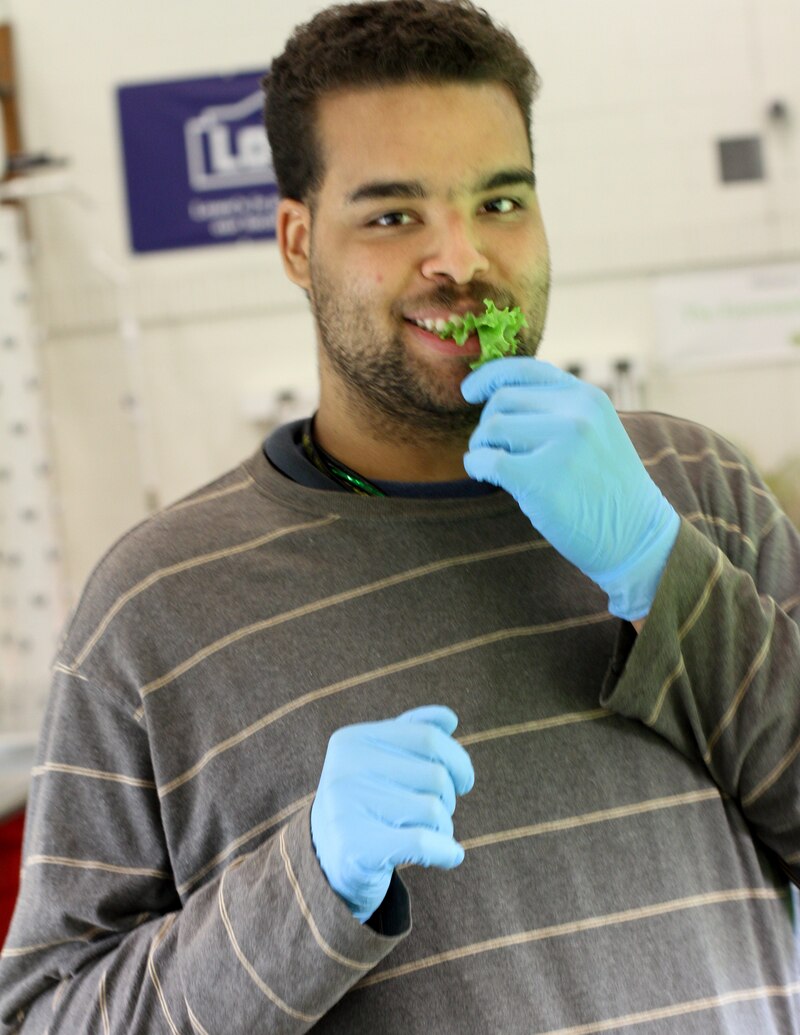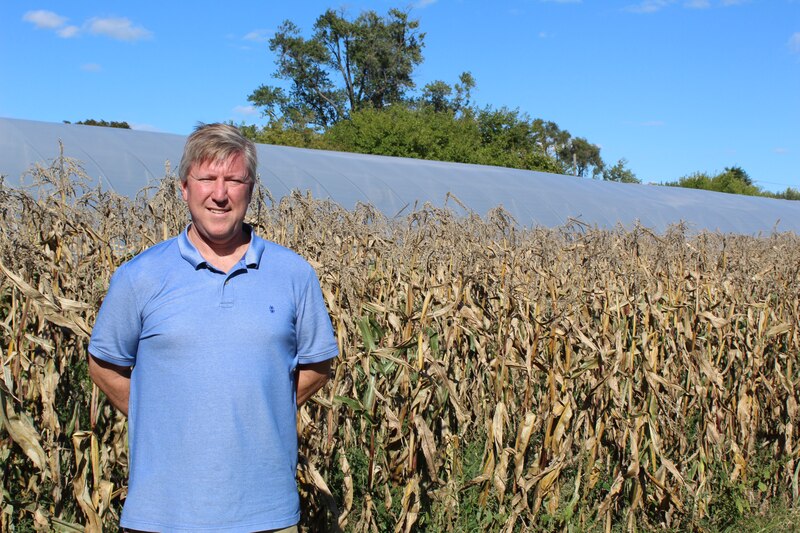Here, in a feature we call How I Teach, we ask educators who’ve been recognized for their work how they approach their jobs. You can see other pieces in the series here.
They might not know it, but when hundreds of Detroit students eat a school lunch, they are consuming vegetables grown just a few miles away by one of the city’s most innovative programs for students with special needs.
Last week, for example, schools in the city’s main district received hundreds of pounds of butternut squash that were grown and packaged at Drew Transition Center, a school where students with severe disabilities prepare to enter adult life.
Supporting Drew Farm — a fertile, four-acre cluster of greenhouses and cornfields that sits behind a school building in the Barton-McFarland neighborhood — is just another day in the classroom for Michael Craig. Under an agreement with farm manager Matt Hargis and the district’s Office of School Nutrition, Craig’s students help grow and care for the crops, a process that teaches lessons in science as well as practical skills that can make students more employable.
Craig had been working as an elementary school teacher when he started the program. He knew nothing about growing food. So he got a certification in horticulture from Michigan State, wrote a few grant proposals (today, he estimates he raises $15,000 a year for his classroom from private donors), and got to work building a curriculum around the farm.
Today, the farm provides roughly 20 tons of fresh produce, from corn to salad greens, every year to 15 schools in Detroit. It simultaneously improves the quality of school lunches, saves the district money, and prepares students with intellectual and physical disabilities to work once they reach 26 years old and are no longer eligible for special education services. Craig was named a finalist for the Michigan Teacher of the Year Award in 2015 for his work at Drew.

“In this class, it’s rare that kids are absent,” Craig said of his students, who range in age from 18 to 26. “They want to come. They know it’s fun. And there’s an incentive for their future.”
We spoke with him about urban agriculture, winning grants, and the hard truths that motivate him to come to work every day.
Give us a sense of what a normal day looks like for you.
I always get to work a little early and I figure out what work needs to be done … then I look at the classes I have. I have to adjust the task to the classes. For example, my wheelchair kids, they come every day for second hour at 10 o’clock, they’ll do half of a task and the other kids will come in and finish it.
It’s all based on what’s growing and what needs to be done.
What supports do you rely on during the school day?
My aide Ms. McLelland is my go-to. Due to the exposure our program gets, I’m called to speak all over the country. If I’m out, she runs the show. I’d be remiss not to recognize Ms. M as the fantastic paraprofessional she is.
What’s something happening in the community that affects what goes on inside your class?
The greatest impact is the whole urban farming movement in Detroit. There are roughly 1,500 urban farms in and around the city, all in collaboration. They’re all my buddies. Keep Growing Detroit is an organization that tries to link all these together. It’s kind of a hub so if someone needs something, they have it. Keep Growing Detroit is also our link to Eastern Market so we can sell produce there.
What part of your job is most difficult?
The hardest part of my job is the day-to-day management. Making sure we’re viable, that we have a budget that’s viable. I’ve had to become a very good grant writer so I can make sure that in five years time the program will still be viable.
The teaching’s the easy part.

What’s the best advice you’ve received about teaching?
Don’t be afraid to ask for help if you need it. There’s a lot of beginning teachers here that are struggling, and for some reason, they think it’s a bad thing to ask for help. When you’re running a program of this size, if you don’t ask for help, you won’t survive.
What motivates you to do this work?
One of the things I keep in mind is that if we don’t do what we do with these kids at Drew, they’re going to age out at 26 and probably spend 30 years in front of the television. The task here is daunting, but we’re trying to create these avenues so these kids can have a future.
Update: October 17, 2018: This story has been updated to reflect the role of farm manager Matt Hargis and the city district’s Office of School Nutrition in running the farm at Drew Transition Center.


